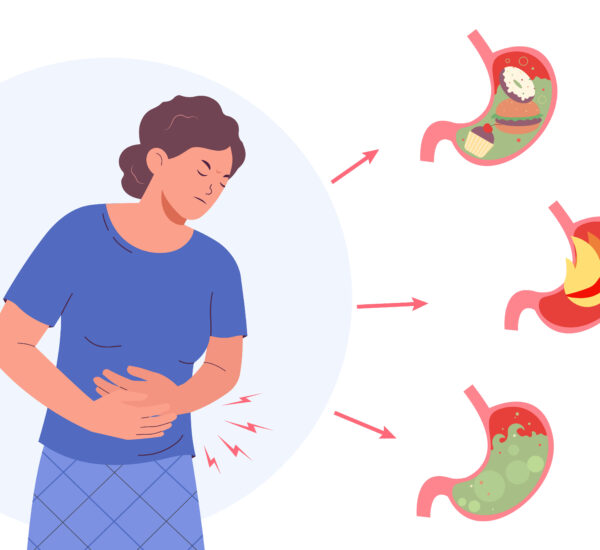If you’re suffering from GERD (Gastroesophageal Reflux Disease), finding quick relief is essential. While medical interventions are available, many prefer to explore GERD home remedy methods first. This treatment approach gives individuals the chance to feel relief from constant heartburn using alternative methods.
Whether or not you are one of those patients seeking for alternative options at home, this blog can help. Recognize the simple yet effective actions in your life and see how they can provide relief. So let’s dive in and explore these effective GERD home remedy options.
The Importance of Treating GERD
Everyone needs to ensure their optimal health to function daily. However, if there are risk factors affecting one’s health, then that can compromise their overall well-being. For instance, a person with GERD can suffer from an affected digestive system, which can either leave the person to gain weight or lose weight.
At the same time, when a person has GERD, the constant discomfort from the burning sensation can be overwhelming. Unfortunately, that doesn’t stop there as there are cases wherein the untreated symptoms of acid reflux and GERD can be dangerous. Patients can develop other illnesses, which can harm their overall health.
In short, prolonged suffering from GERD is not only painful, but it can also lead to the development of harmful conditions. That’s why it is important to be more aware of your health. Recognizing the warning signs or changes in your digestive health can be the first step towards a better health status.
Health Illnesses and GERD
While occasional acid reflux is common and not a cause for concern, chronic and untreated GERD can lead to potential complications. GERD is a chronic condition where stomach acid flows back into the esophagus, causing irritation and discomfort. The lower esophageal sphincter plays a huge role in this situation, allowing substances like stomach acid, bile, etc. to rise.
If left untreated, this constant exposure to acid can result in various complications that can impact your health and well-being.
Here are the possible health complications:
- Esophageal ulcers: Continuous exposure to stomach acid can lead to ulcers in the lining of the esophagus.
- Esophagitis: Inflammation of the esophagus caused by the irritation from stomach acid.
- Barrett’s esophagus: In some cases, long-term acid reflux can cause changes in the lining of the esophagus, increasing the risk of esophageal cancer.
- Dental issues: Stomach acid rising and other stomach contents can affect the teeth health. Thus, resulting in cavities and other dental problems.
- Chest pain: It can be associated with constant acid reflux, leaving the patients to feel frequent heartburn and discomfort.
- Dysphagia: This happens due to the persistent acid reflux and affects the esophagus. It makes it difficult for food to pass.
By recognizing the importance of treating GERD, you can take steps to prevent these complications and improve your overall well-being.
Connected Complications
Aside from the mentioned health issues above, there are also cases wherein patients develop certain conditions that are not directly detected. For instance, researchers have found that a possible connection between GERD and high blood pressure or hypertension occurs. Some patients are believed to have a variant of GERD like silent reflux when they have hypertension.
Furthermore, untreated GERD can also lead to respiratory issues such as asthma or chronic cough. The backflow of stomach acid into the esophagus can trigger reflexes that cause coughing, leading to disruptions in daily life and potential complications in respiratory health.
Meanwhile, a heart attack might also be a result of untreated GERD. The chest pain associated with acid reflux can sometimes be mistaken for a heart attack, leading to unnecessary panic and confusion. It is essential to address and manage GERD symptoms promptly to avoid these misinterpretations and potential complications.
Home Remedies for GERD Relief
Living with untreated GERD can significantly impact your quality of life. The discomfort and pain associated with the condition can make it difficult to enjoy everyday activities or even get a good night’s sleep. By addressing GERD, you can regain control of your life and find relief from these symptoms.
When it comes to finding relief from GERD symptoms, several GERD home remedy options have been proven effective. Let’s explore some of the most commonly recommended approaches.
Dietary Changes for GERD Management

Adjusting your diet can play a vital role in managing GERD symptoms. Some dietary changes that may help relieve symptoms include:
- Avoiding specific foods and beverages: Trigger foods, such as spicy foods, citrus fruits, and chocolate, can trigger acid reflux. Meanwhile, beverages with caffeine and alcohol can result in GERD. Limiting or avoiding these foods can help reduce symptoms.
- Eating smaller, more frequent meals: Overeating can put pressure on the LES, leading to acid reflux. Opting for smaller, well-balanced meals throughout the day can alleviate this pressure.
- Consuming low-fat foods: High-fat foods can slow down the digestion process, increasing the likelihood of acid reflux. Opt for low-fat alternatives to mitigate symptoms.
By incorporating these dietary changes into your lifestyle, you can better manage GERD symptoms and experience relief. Although, it’s best to seek guidance from a dietitian to properly assess the foods and beverages that you should not consume. Thus, allowing you to have a balanced diet despite the restrictions on food intake.
Lifestyle Changes to Ease GERD Symptoms

In addition to dietary adjustments, another GERD home remedy is practicing some lifestyle modifications. Doing so can provide relief from acid reflux symptoms. Consider implementing the following changes:
- Elevating the head of your bed: Raising the head of your bed by a few inches can help prevent stomach acid from flowing back into the esophagus while you sleep.
- Avoid lying down after meals: Give yourself ample time to digest your food before lying down. This allows gravity to work in your favor by keeping stomach acid where it belongs.
- Quitting smoking: Smoking weakens the LES, making it easier for stomach acid to escape into the esophagus. Quitting smoking can improve GERD symptoms and overall health.
By incorporating these lifestyle modifications, you can significantly reduce the frequency and intensity of GERD symptoms. However, it’s important to note that while these home remedies can provide relief for many individuals, they may not be suitable for everyone. It is always recommended to consult with a healthcare professional before making any significant changes to your lifestyle.
Herbal Remedies

For those who prefer natural GERD home remedy options, certain herbs have shown promise in providing relief from GERD symptoms. Let’s explore two popular herbal remedies:
Aloe Vera for GERD Relief
Aloe vera is known for its soothing properties and can help alleviate various digestive issues, including acid reflux. Drinking aloe vera juice can provide relief by reducing inflammation in the esophagus and promoting healing. However, it’s essential to choose a high-quality, pure aloe vera juice without added sugars or preservatives.
Furthermore, aloe vera is not only beneficial for GERD but also for overall digestive health. It contains enzymes that help break down food and improve nutrient absorption. Also, it has cooling properties that can provide relief from heartburn and indigestion, making it a versatile remedy for various gastrointestinal issues.
Although, this natural GERD home remedy may not be suitable for every GERD patient. It’s best to be cautious of the GERD home remedy that you’ll try to avoid side effects from using them.
Chamomile Tea and GERD
On the other hand, herbal teas like chamomile tea have a long history of use for digestive ailments and can help soothe the symptoms of GERD. The tea’s anti-inflammatory properties can reduce esophageal irritation and promote relaxation. Sip on a warm cup of chamomile tea after meals to experience its benefits.
In addition to its calming effects on the digestive system, this GERD home remedy is also known for its stress-relieving properties. Stress is a common trigger for GERD symptoms, so incorporating chamomile tea into your daily routine can help not only with acid reflux but also with managing stress levels. The gentle nature of chamomile makes it a suitable option for those with sensitive stomachs.
Over-the-Counter Solutions for GERD

If GERD home remedy options alone do not provide sufficient relief, over-the-counter solutions is the more effective way to go for managing GERD symptoms. Let’s explore two common options:
Antacids and Their Effect on GERD
Antacids work by neutralizing stomach acid to provide temporary relief from GERD symptoms. This medication is effective as a heartburn relief and can address other mild symptoms. However, antacids should not be used as a long-term solution, as they do not address the root cause of GERD.
When choosing an antacid, it’s important to consider the active ingredients. Some antacids contain aluminum hydroxide, which can cause constipation, while others contain magnesium hydroxide, which can have a laxative effect. It’s advisable to consult with a healthcare professional or read the product label to determine the most suitable option for your needs.
Additionally, antacids may interact with certain medications, such as antibiotics and blood thinners. If you are taking any prescription medications, it’s crucial to inform your healthcare provider before starting an antacid regimen to avoid potential drug interactions.
H2 Blockers and Proton Pump Inhibitors
In more severe cases, over-the-counter H2 blockers and proton pump inhibitors (PPIs) may be recommended by healthcare professionals. H2 blockers reduce the production of stomach acid, while PPIs inhibit acid production altogether. These medications should be used under medical supervision and for a limited duration.
It’s important to note that while H2 blockers and PPIs can provide significant relief from GERD symptoms, they may have potential side effects. Common side effects of H2 blockers include:
- headache
- dizziness
- diarrhea
PPIs, on the other hand, may cause the following side effects:
- nausea
- abdominal pain
- increased risk of certain infections
As with any medication, it’s crucial to follow the recommended dosage and duration of use. Prolonged use of H2 blockers and PPIs without medical supervision can lead to rebound acid production and may mask underlying conditions that require further evaluation and treatment.
Conclusion
Ultimately, finding the right combination of home remedies and over-the-counter solutions depends on your unique needs and the severity of your GERD symptoms. It’s essential to consult with a healthcare professional for personalized guidance and an accurate diagnosis.
Remember, managing GERD is a journey that requires patience and perseverance. By exploring different options and working closely with your healthcare provider, you can find the most effective strategies to alleviate your symptoms and improve your quality of life.


